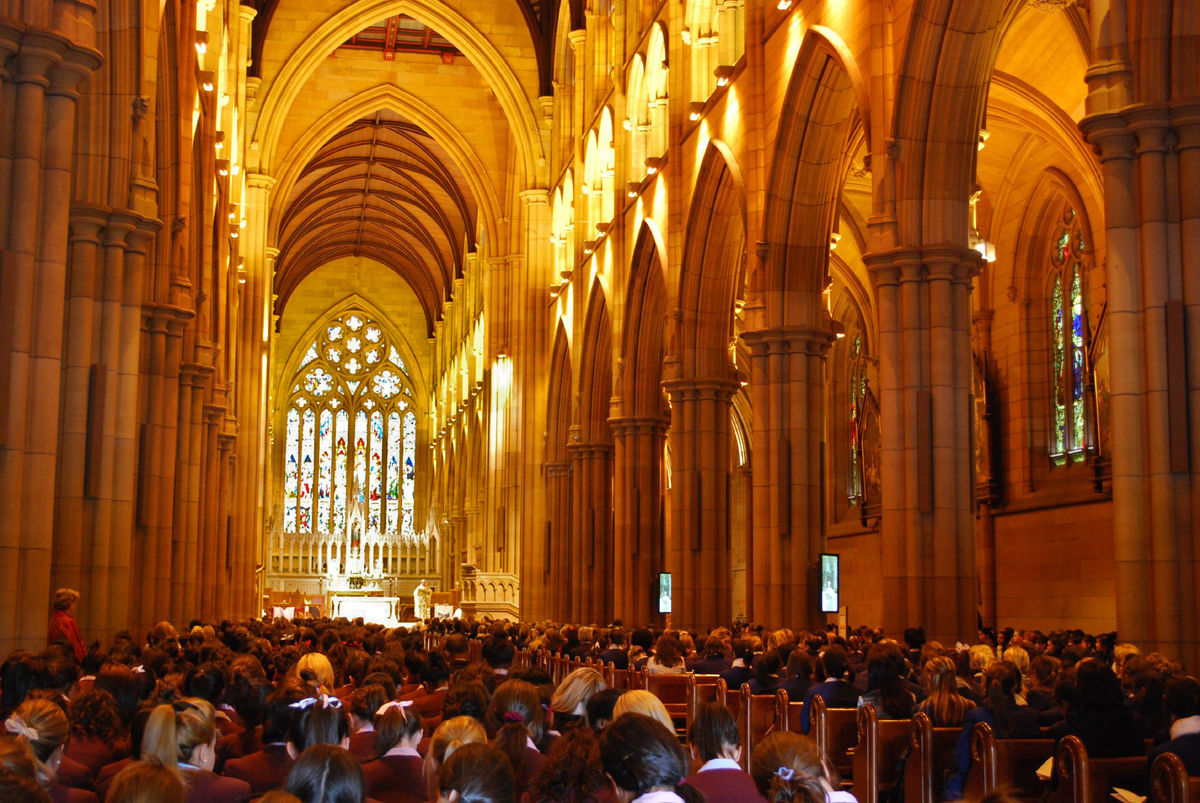The people have already come into the church (well, most of them have arrived). Individual practices are everywhere. Some genuflect before taking their pew. Some bow solemnly before the altar, then sit. Others wave to friends and family and start to make small talk while mindlessly half-genuflecting and then sitting to make a cursory prayer. In just a few moments, however, these people will be receiving one of the greatest gifts given to humanity. The Eucharist. These people will remain in their chosen pew until the time comes for them to process up to the altar of God to receive a tiny piece of what was once bread and a little sip of what was once wine that will transform their hearts and minds.
Before the Mass even begins, before we can truly approach the presence of God, we must acknowledge how divided we are, how fallen we are, how prideful we are. And so we sing. When people sing together, "miracles" happen. People who know they cannot hold a tune sing out with glee. The talented hold back so as to not blow people away. The rich and the poor sing the same words, maybe on the same pitch. The pious and the impious sing with hesitation. Everyone is standing together. For a few brief moments, for a few memorable seconds, there is unity in the People of God. The sound of a large group of people singing is a wondrous one. Individual voices fade away, while a loud, rumbling unison takes its place. The God who transforms hearts and minds is already working.
I have been involved in music ministry for a long time—most of my life. My parish back home is now the result of a merger between my parish (the Italian church) and the other neighborhood church (the traditionally Irish one). The initial merger was tough, I know, with everyone making the case that their church had the right traditions and best practices. Some stopped going to church, resenting the fact that the churches they had built up and loved will never be the same. It was a difficult time for everyone; indeed, we all mourned the merger in our own way. But something happened after the merger when the two churches came together at the liturgy: the singing became thunderous.
Whenever I visit home, I try to cantor a few times. Growing up, my parish congregation made a whisper. I had been to Mass a at the other church too, and that was a similar whisper. But when I visited home last summer, I heard the newly merged parish, the congregation a mix of faces old and new, blow the roof off the place with the entrance hymn: “Holy, holy, holy! Lord God Almighty! Early in the morning my song shall rise to thee.” The men and women and children in that church became one in a beautiful chorus, singing in a unison that is always more meaningful than harmony. Sometimes, it takes a moment like that to transform my musician’s heart from perfection to praise. The sound was rough and coarse, with some people singing a tad faster than others, some radically off pitch. But I doubt I have ever heard a more beautiful sound in all my life.
God takes our voices and makes them one. When we unite together in what our lives are ordered toward, we find ourselves at one with each other. We are made to praise and love and serve God and each other. When we sing together, we praise God and we look to each other and say, “We’ve had disagreements. Let’s set those aside and worship the One who loves us best.” God heals divisions for a while so that we can feast together. Music, singing, praise, and love make that come to life. Before the opening prayers of the Mass are even uttered, God has begun his life-saving work.
